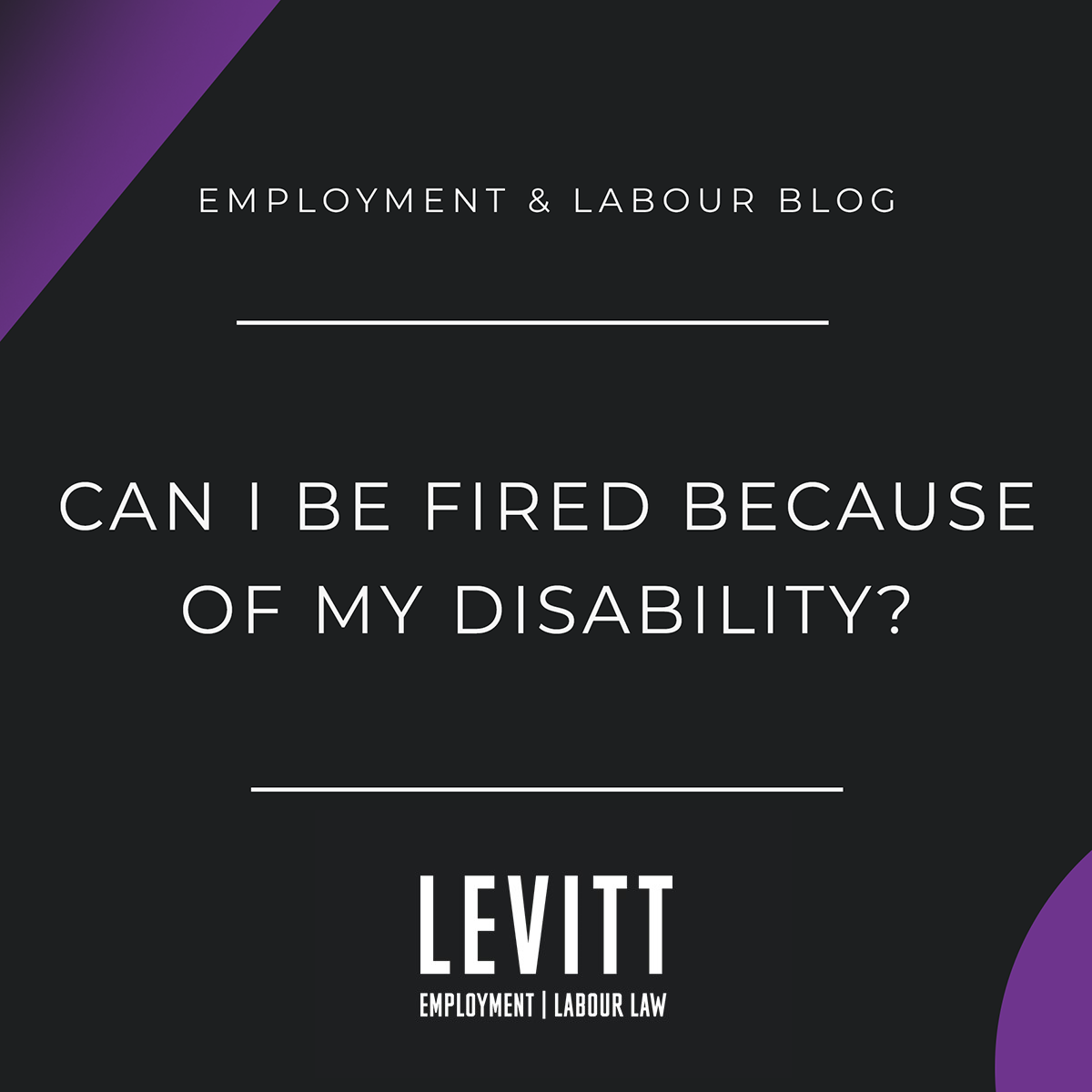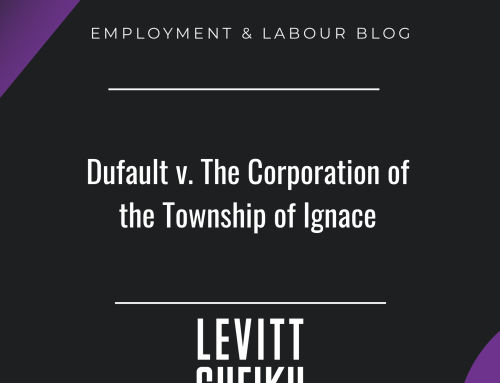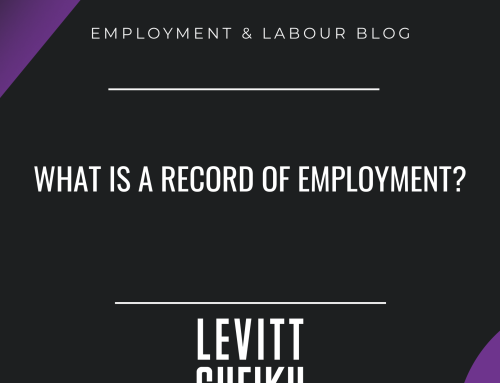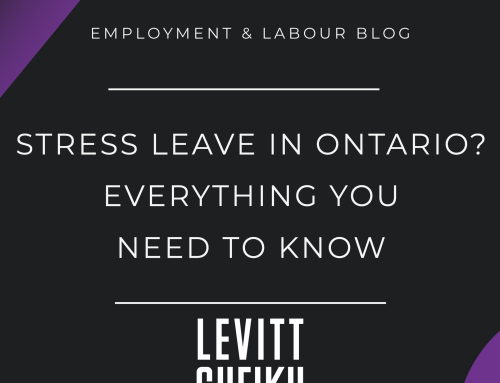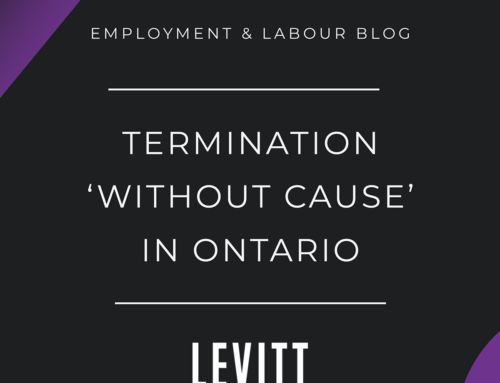This post will answer many of your questions about whether you can be fired while on disability leave or because of your disability.
- Disability cannot be a reason for firing, but an employee with a disability can be fired.
- Under certain circumstances, an employee can be fired while on disability leave.
- You can file a complaint with the Ontario Human Rights Commission if you were fired because of your disability.
Can my employer fire me because of my disability?
No: an employer may not fire an employee because of that employee’s disability. To have or to be perceived to have a disability is one of the grounds protected by the Ontario Human Rights Code and by human rights legislation across Canada. If an employer terminates an employee, and the employee’s real or perceived disability was a factor in the decision to fire them, then the employer has violated the Ontario Human Rights Code.
Does a disability make an employee “unfireable”?
No. Employees may certainly not be fired because of their disability, but that does not mean that an employer may never dismiss an employee with a disability. For example, such an employee could still be dismissed for cause.
In addition, under specific circumstances, an employer may be able to dismiss an employee with a disability who is unable to perform his or her job. However, employers must remember that they first have a duty to accommodate an employee with a disability up to the point of undue hardship. Examples of accommodation could include implementing measures or adjusting the employee’s duties. For more on the duty to accommodate, click here (link to an article about the duty to accommodate, forthcoming).
If the duty to accommodate has been met and the employee is still unable to perform his or her job duties, it is possible that an employer could claim that the employment relationship has been frustrated. However, frustration of contract is a fact-specific and complex question, especially when benefits are involved. For more information about frustration, see the following question.
Can an employee be fired while receiving disability benefits?
It depends on the circumstances.
An employment contract is frustrated when the terms of the contract cannot be performed due to no fault of either of the contracting parties. In that case, both parties are released from their obligations and the agreement terminates.
In some circumstances, an extended disability where there is no prospect that the employee will be able to return to work will mean that the contract has been frustrated. Whether frustration occurred requires fact-specific analysis that looks at certain factors, including: the likelihood of the employee’s recovery, how long the employee has been employed, the type of work being performed, and the terms of the contract and disability benefits policy.
If an employee is entitled to receive Long-Term Disability benefits, this will likely make it more difficult (but not impossible) for an employer to claim that the contract has been frustrated.
However, frustration of contract is relatively rare and is hard to prove. Employers should seek expert help if they intend to rely on it. You can contact one of our lawyers today for guidance on this topic.
What if I am being treated badly by my employer because of my disability?
If you believe that you are being treated badly at work because you have a disability (or even because your employer thinks you have a disability), there are two remedies available to you.
The Ontario Human Rights Code prevents employers from discriminating against an employee on the basis of disability (or any other Code protected ground, such as race or sex) during the course of their employment. An example of discrimination on the basis of a disability during employment is a situation where an employee returns to work from a disability-related leave to a modified role at a lower pay rate because the employer incorrectly assumes that the employee will no longer be able to adequately perform the duties of their former role because of the disability. In this situation, the employer has discriminated against the employee on the basis of a disability.
In addition, you can claim that you have been constructively dismissed because your employer has created a toxic work environment. Constructive dismissal is a type of wrongful dismissal where the employer has not directly terminated the employee, but instead the employer has failed to comply with the employment contract in a major respect. This could mean changing a term without employee acceptance or threatening to do so, therefore, pushing the employee to quit.
Every situation is different, and you should note that discrimination is measured on an objective, not subjective, standard.
What do I do if I think I am being discriminated against or have been unjustly fired because of my disability?
If you were fired because of your disability, this is discrimination and a violation of human rights laws. If you believe you were fired because of your disability, you can file a complaint with the Ontario Human Rights Commission (OHRC). We highly recommend you contact one of our lawyers today for expert guidance through the entire process.
Conclusion
Remember, an employer cannot fire or mistreat an employee because of that employee’s disability. Rather, employers must accommodate an employee who has a disability. But this does not mean that a disability acts as a total shield against being fired, whether for reasons of cause or because the contract has been frustrated.
If you are unsure whether your unique circumstances counts as discrimination, we highly recommend you contact one of our lawyers today. We can provide expert guidance throughout the entire process.

